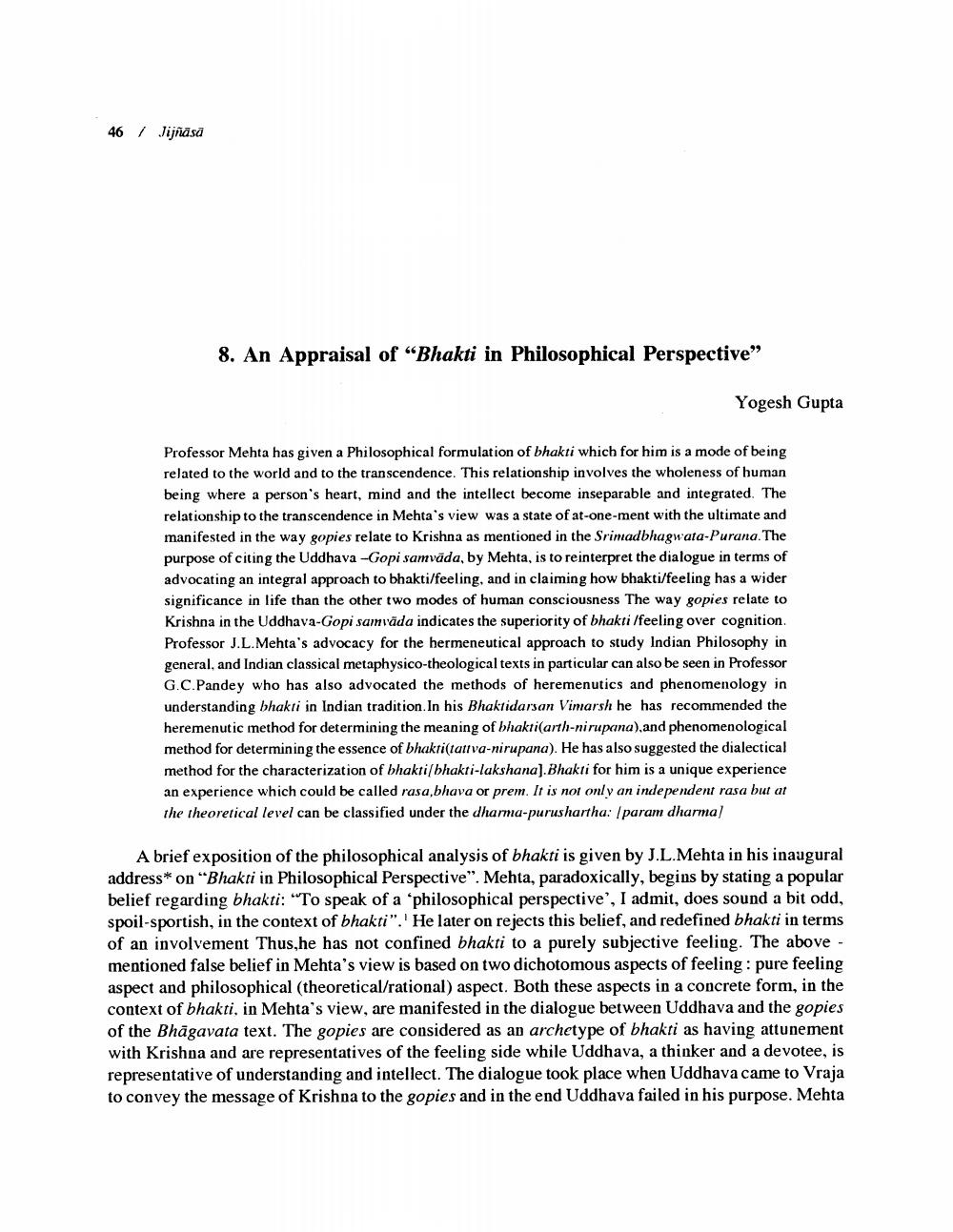________________
46
i Jijñāsā
8. An Appraisal of “Bhakti in Philosophical Perspective”
Yogesh Gupta
Professor Mehta has given a Philosophical formulation of bhakti which for him is a mode of being related to the world and to the transcendence. This relationship involves the wholeness of human being where a person's heart, mind and the intellect become inseparable and integrated. The relationship to the transcendence in Mehta's view was a state of at-one-ment with the ultimate and manifested in the way gopies relate to Krishna as mentioned in the Srimadbhagwata-Purana. The purpose of citing the Uddhava -Gopi samvada, by Mehta, is to reinterpret the dialogue in terms of advocating an integral approach to bhakti/feeling, and in claiming how bhakti/feeling has a wider significance in life than the other two modes of human consciousness The way gopies relate to Krishna in the Uddhava-Gopi samvada indicates the superiority of bhakti /feeling over cognition. Professor J.L.Mehta's advocacy for the hermeneutical approach to study Indian Philosophy in general, and Indian classical metaphysico-theological texts in particular can also be seen in Professor G.C.Pandey who has also advocated the methods of heremenutics and phenomenology in understanding bhakti in Indian tradition. In his Bhaktidarsan Vimarsh he has recommended the heremenutic method for determining the meaning of bhakti(arth-nirupana),and phenomenological method for determining the essence of bhakti(tattva-nirupana). He has also suggested the dialectical method for the characterization of bhaktisbhakti-lakshana).Bhakti for him is a unique experience an experience which could be called rasa, bhava or prem. It is not only an independent rasa but at the theoretical level can be classified under the dharma-purushartha: /param dharma
A brief exposition of the philosophical analysis of bhakti is given by J.L.Mehta in his inaugural address* on “Bhakti in Philosophical Perspective". Mehta, paradoxically, begins by stating a popular belief regarding bhakti: "To speak of a philosophical perspective, I admit, does sound a bit odd, spoil-sportish, in the context of bhakti".' He later on rejects this belief, and redefined bhakti in terms of an involvement Thus, he has not confined bhakti to a purely subjective feeling. The abovementioned false belief in Mehta's view is based on two dichotomous aspects of feeling : pure feeling aspect and philosophical (theoretical/rational) aspect. Both these aspects in a concrete form, in the context of bhakti, in Mehta's view, are manifested in the dialogue between Uddhava and the gopies of the Bhāgavata text. The gopies are considered as an archetype of bhakti as having attunement with Krishna and are representatives of the feeling side while Uddhava, a thinker and a devotee, is representative of understanding and intellect. The dialogue took place when Uddhava came to Vraja to convey the message of Krishna to the gopies and in the end Uddhava failed in his purpose. Mehta




